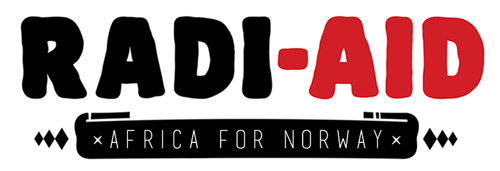Our Solutions to Their Issues?
/In a changing, multi-polar world, countries in Asia, Africa and Latin America are playing an increasingly larger role on the global scene. This affects us now and will increasingly do so in the future. Previously we could – paternalistically and at long distance – define the world’s problems and prescribe our solutions for people lacking the possibilities we had. Our solutions to their issues. Separately.
The world is at our doorstep. These days, a new influx from the world into Europe and to Norway is displaying all its challenges, despair, hopes and capacities. This is a shared existence, in which distance is no longer relevant. Some may think this is a short-term phenomenon; however, we are certain that this is a lasting reality. The image of otherness and of others struggling with their issues far away is obsolete.
We need to come to terms with development as a common challenge, shared across countries and continents, based on mutual interests and equity. Together.
Norway has never been as homogenous or isolated as stated by our national narrative. Even though we may be led to believe that the current situation is extraordinary, in a larger perspective, the situation in Norway is nothing but ordinary. Through time immemorial, we have been interconnected with the outside world politically, culturally, and socially.
"Colonialism, migration, trade – and gradually, tourism, the internet, media and other impulses have shaped our society and the way we think."
The only thing that may be new about today’s changes are perhaps the speed in which they occur.
Through centuries, we have grown accustomed to a reality where we, the West, have been dominating the rest of the world. Increasingly today power, money and influence are spreading geographically to countries, regions and actors that were previously weakened by western imperialism. Every day, decision-making in Africa, Asia and Latin America affects our lives through social processes, economic development and climate change.
Norwegians have a self-image of being the well-doers, for helping people all over the world, preferably to do so on our own, and in our manner. And not to mention; of “helping” people far away in their own home areas! This constitutes part of the Norwegian people’s national identity, and how we understand our own role in the global community. Good-hearted Norwegian missionaries, curious sailors and well-meaning development workers have through decades reported back images from Africa, Asia and Latin-America of deprivation and misery. Our media, art and literature, trade and marketing have reflected the same. Over time perpetuating orientalist, spectacular, alienated perspective of others, and at worst racism as well as stereotypes of countries, people and cultures in “the South” which have little root in reality. Not only do they wrong the majority of the world, but such stereotypical thinking blocks our own culture and growth as a society.
Young people today, no matter where they grow up, face a chaotic, intertwined world in which all possibilities are known, yet hard to access. The opportunities for employment, economic growth and social security that our little country up north can provide us today and in the future, are shaped by events taking place in what we, for lack of a better word, lump into the term “South” or “developing nations”.
"The way the world changes, and the challenges and opportunities we stand in together, forces us to realise that we face a common, shared reality. Not us and them any longer, but rather one, big us."
It demands us to listen emphatically and seriously understand the voices and opinions from the Global South. Because those voices are our most important tool for understanding our times and what to expect of the future.
The voices from the South are numerous and heterogeneous, and we need to make room for them, on their own terms. We need them all over Norway: in debates, in the media, in education and in the many organisations and businesses where people work. These voices will make us better suited to learn and understand our own society, the world and our place in it.
Listening to these voices will enable us to surpass the old divides based on donor-recipient and traditional images of poor and rich, of developed and under-developed. They will compel us to recognize that we are all developing nations and peoples. Ultimately, these voices will empower us to feel, think and act on the basis of mutuality and shared humanity.
By Nita Kapoor
Nita Kapoor is the Director of FK Norway.





